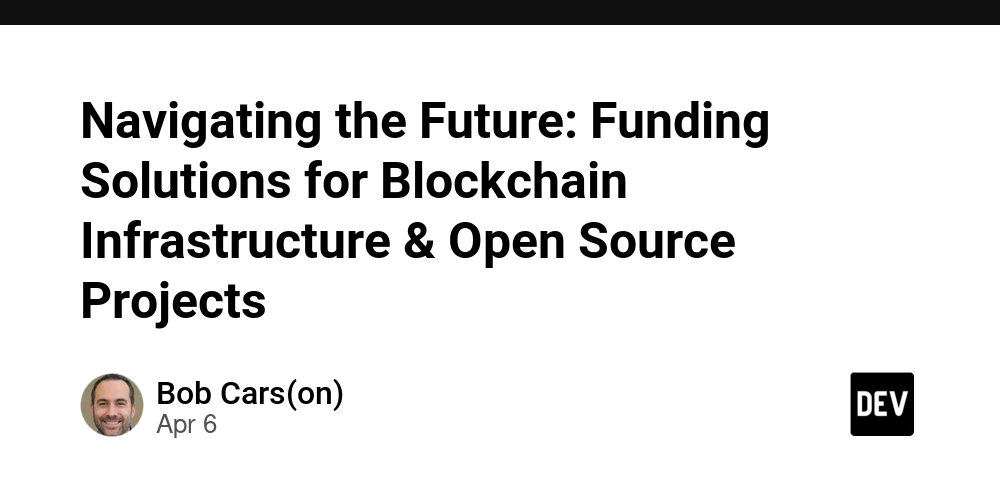Dev
2w
56

Image Credit: Dev
Navigating the Future: Funding Solutions for Blockchain Infrastructure & Open Source Projects
- This article explores innovative funding solutions for blockchain infrastructure and open source projects, highlighting historical perspectives and evolving models such as crowdfunding, NFT-backed licensing, and dual licensing.
- Blockchain technology and open source development face unique funding challenges as they transition to decentralized applications and innovative approaches like corporate sponsorships and crowdfunding.
- Blockchain infrastructure encompasses distributed ledger technology, consensus mechanisms, smart contracts, and scalability solutions, funded through sources like venture capital, token sales, and government grants.
- Open source projects adopt funding models including crowdfunding, donations, corporate sponsorships, dual licensing, and service revenue to ensure project sustainability.
- The integration of blockchain and open source promotes decentralization, transparency, community collaboration, and hybrid funding models that enhance innovation, reliability, and market reach.
- Use cases like decentralized finance networks, open source cybersecurity tools, and NFT-backed licensing demonstrate how funding sources like token sales, VC investments, and community sponsorships drive technological advancements.
- Challenges in regulatory uncertainty, technical complexity, security threats, and monetization require strategies like rigorous security protocols, transparent governance, diversified funding sources, and compliance to overcome.
- Future trends include technological advancements, tokenization, enhanced regulatory frameworks, integration with DeFi, and community engagement models shaping the landscape of funding for blockchain infrastructure and open source projects.
- Innovative financial models and a focus on community engagement are crucial for sustainable growth and success in the digital era of blockchain and open source projects.
- Embracing decentralized finance, ethical licensing, and tokenization is essential for stakeholders to secure a promising future in funding these innovative technologies.
- The article concludes by emphasizing the importance of innovative funding solutions and transparent governance to drive a new era of sustainable digital development in blockchain infrastructure and open source initiatives.
Read Full Article
3 Likes
For uninterrupted reading, download the app